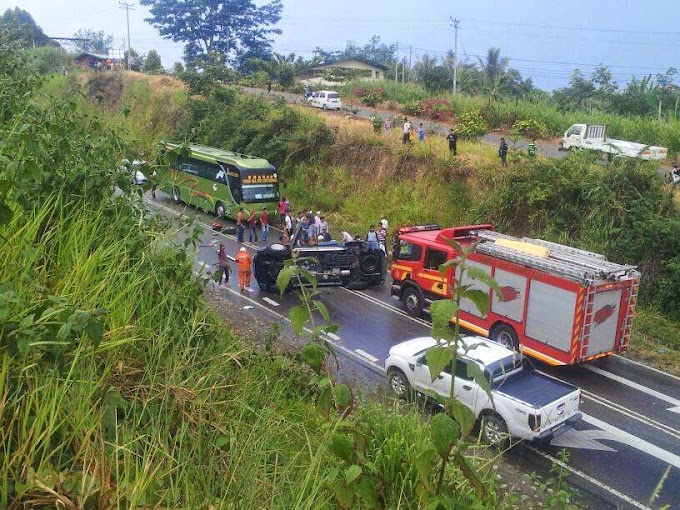Malaysian human rights group, Suara Rakyat Malaysia, aka Suaram, meaning Voice of Malaysian Citizens, released on Dec 9, 2008 its annual overview of the country's civil right status. The following highlight in the report demonstrates the poor human rights record in Malaysia:
1. The perpetuation of racial and religious intolerance, made worse by the heightened politicization of race by the race-based ruling parties, Barisan National, to strengthen support. Racial discrimination continues to be institutionalized, while the assertion of racial and religious intolerance by non-state actors has been tolerated by the government. There would be pertinent implications on human rights and fundamental freedom in Malaysia when current premier Abdullah Ahmad Badawi relinquishes the leadership to his deputy Najib Abdul Razak next year.
2. The continued use of the Internal Security Act (ISA) and other repressive laws to arrest and detain critics and opposition of the government. The government continued to detain persons without trial, with 46 individuals still detained under the ISA as of 5 December 2008. 10 arrests were made under the ISA in 2008, including a blogger, an opposition member of parliament, and a journalist, while 55 detention orders or extension of detention orders were signed by the Home Minister.
3. The perpetuation of the culture of impunity in the police force with further instances of abuses of police powers. These abuses remained unchecked with the failure to set up the Independent Police Complaints and Misconduct Commission (IPCMC). In 2008, SUARAM recorded 7 deaths in police custody through media monitoring, with possibly
more cases unreported.
4. Press freedom continued its decline in world rankings, being placed in an all-time low position of 132nd out of 195 countries in 2008, dropping from 124th in 2007. The continued downward slide was made worse by the persecution of critics and dissidents, especially bloggers.
5. The government was selective in recognizing the right to freedom of assembly. While some assemblies were tolerated by the government, those which were held to oppose government policies were cracked down.
6. Refugees, undocumented migrants and asylum-seekers continued to face arrests and other serious human rights abuses, particularly in mass arrests, deportations, and inhuman conditions of detention, as a result of the Malaysian government's non-recognition of the rights of these groups.
7. The eroding confidence towards the judiciary with no substantial reforms being taken despite the findings of the Commission of Enquiry on the "Lingam Tape" which confirmed the heavily compromised independence of the judiciary.
8. The loss of credibility of Malaysia at the international level for its lack of commitment in promoting and protecting human rights, best illustrated in the possible downgrading of the Human Rights Commission of Malaysia (SUHAKAM).
2. The continued use of the Internal Security Act (ISA) and other repressive laws to arrest and detain critics and opposition of the government. The government continued to detain persons without trial, with 46 individuals still detained under the ISA as of 5 December 2008. 10 arrests were made under the ISA in 2008, including a blogger, an opposition member of parliament, and a journalist, while 55 detention orders or extension of detention orders were signed by the Home Minister.
3. The perpetuation of the culture of impunity in the police force with further instances of abuses of police powers. These abuses remained unchecked with the failure to set up the Independent Police Complaints and Misconduct Commission (IPCMC). In 2008, SUARAM recorded 7 deaths in police custody through media monitoring, with possibly
more cases unreported.
4. Press freedom continued its decline in world rankings, being placed in an all-time low position of 132nd out of 195 countries in 2008, dropping from 124th in 2007. The continued downward slide was made worse by the persecution of critics and dissidents, especially bloggers.
5. The government was selective in recognizing the right to freedom of assembly. While some assemblies were tolerated by the government, those which were held to oppose government policies were cracked down.
6. Refugees, undocumented migrants and asylum-seekers continued to face arrests and other serious human rights abuses, particularly in mass arrests, deportations, and inhuman conditions of detention, as a result of the Malaysian government's non-recognition of the rights of these groups.
7. The eroding confidence towards the judiciary with no substantial reforms being taken despite the findings of the Commission of Enquiry on the "Lingam Tape" which confirmed the heavily compromised independence of the judiciary.
8. The loss of credibility of Malaysia at the international level for its lack of commitment in promoting and protecting human rights, best illustrated in the possible downgrading of the Human Rights Commission of Malaysia (SUHAKAM).








